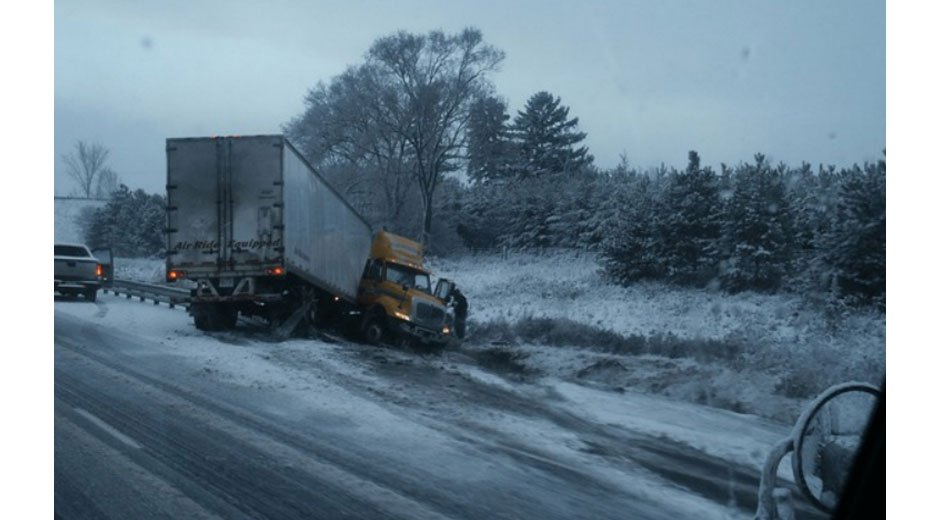A jackknife truck accident lawsuit is a legal process that determines fault, liability, and compensation after such a crash. These cases often involve complex evidence like driver logs, maintenance records, and accident reconstruction. In Fresno, in California’s Central Valley, where trucking routes intersect with local highways, victims must navigate state and federal trucking regulations. The process typically includes investigation, filing claims, negotiations, and possibly a trial. Understanding each stage helps injured parties protect their rights and seek fair recovery for medical, financial, and emotional losses.
What Is a Jackknife Truck Accident?
When a tractor-trailer loses control and the cab and trailer swing into a 90-degree angle, it results in a jackknife accident. This frequently happens as a result of speeding, slick roads, hard braking, or mechanical problems. These collisions might involve a large number of automobiles and block many lanes. A top-rated Fresno jackknife accident lawyer can help victims pursue compensation for injuries, damages, and other losses.
Who Can Be Held Liable?
Under California law, multiple parties might share responsibility for a jackknife accident. This includes the truck driver who might have been negligent by speeding or driving distracted. If there is inappropriate cargo loading, poor vehicle maintenance, or insufficient driver training, the trucking company may be held accountable. If a mechanical flaw led to the accident, truck manufacturers or suppliers of parts may also be held responsible. Finding the person who violated their duty of care and caused the collision is the first step in determining culpability.
Initial Steps After the Accident
After a jackknife accident, it is critical to promptly seek medical attention, even if injuries are not immediately apparent. Law enforcement should be contacted to create an official accident report. Collecting evidence such as photos, witness statements, and medical records is essential. Importantly, avoid admitting fault or discussing the accident extensively with the other party or insurer without legal counsel.
Filing the Lawsuit and Statute of Limitations
In Fresno, injured parties typically have two years from the date of injury to file a truck accident lawsuit. If injuries were discovered later, the deadline may extend to one year from that date. The lawsuit process begins by submitting a claim against the responsible parties, demanding compensation for medical bills, lost wages, pain, suffering, and other damages.
What Happens During the Lawsuit?
The lawsuit process usually involves several phases;
- Investigation: Attorneys gather all relevant facts, including accident reconstruction, medical evaluations, and witness testimony, to prove negligence.
- Negotiation: Most truck accident cases settle before trial through negotiations with insurance companies. Settlements aim to compensate victims fairly.
- Litigation: If a settlement cannot be reached, the case proceeds to trial, where both sides present their evidence before a judge or jury.
- Resolution: The lawsuit ends with either a settlement or a court judgment awarding damages.
Types of Damages You Can Recover
Victims may pursue financial compensation for things like lost wages, medical bills, rehabilitation fees, and property damage. Restitution for emotional distress, loss of life enjoyment, and one example of non-economic damages is pain and suffering. To deter reckless behavior, punitive damages may also be awarded in cases involving excessive negligence.
Why Legal Representation Matters
Jackknife truck accident lawsuits often involve large insurance companies and complex liability issues. Skilled attorneys in Fresno help victims protect their rights by managing documentation, negotiating on their behalf, and ensuring fair compensation. Without experienced legal representation, victims risk accepting settlements that undervalue their injuries and losses.
Key Takeaways
- Fresno jackknife truck accident cases can feel intimidating to handle.
- Understanding each step of the process is essential to protect your rights.
- Key aspects include establishing liability, navigating legal procedures, and pursuing appropriate damages.
- Acting with informed decisions helps safeguard your interests.
- If you’ve been injured, seek legal advice promptly from an experienced attorney.
- Early legal guidance can help you secure the maximum compensation for recovery and long-term health.






